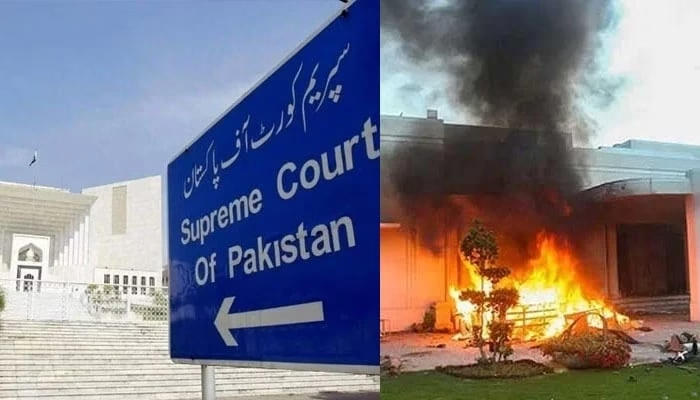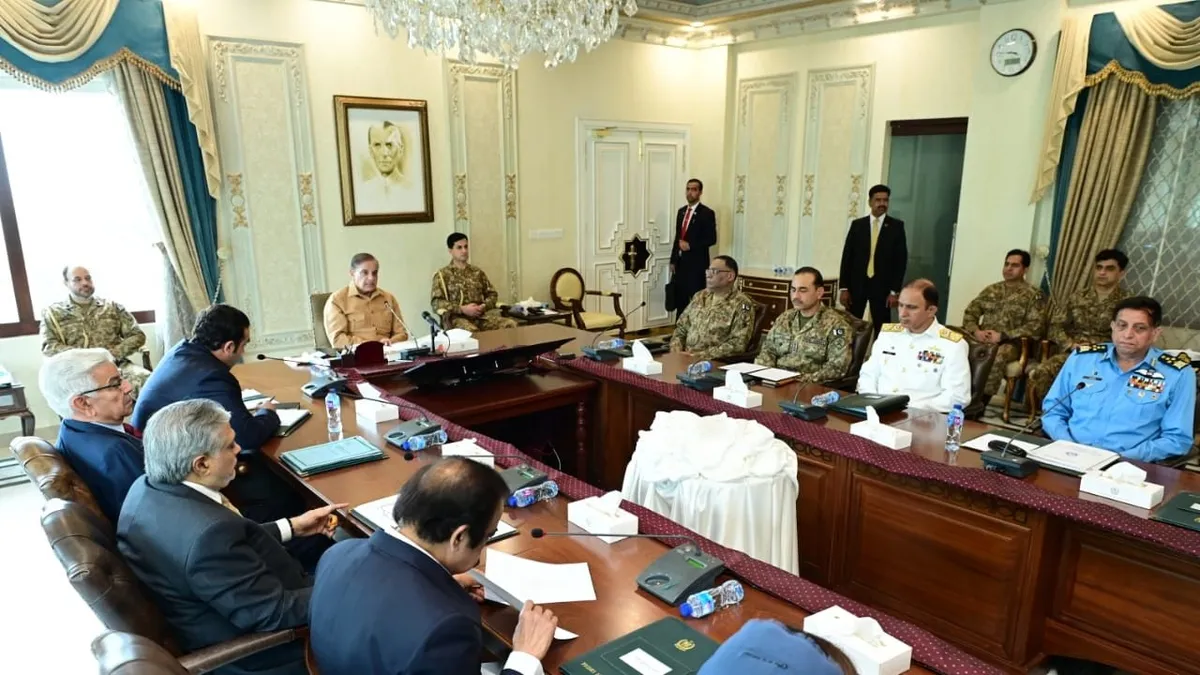In a significant development, Chief Justice of Pakistan Yahya Afridi has reassured the public that the rights of the accused will be fully safeguarded during the expedited trial of the May 9 cases. This comes after the Supreme Court ordered that all cases related to the May 9 incidents be concluded within four months.
The assurance was given during the hearing of a case concerning the cancellation of bail for several accused individuals linked to the events of May 9. The hearing was conducted by a three-member bench of the Supreme Court, with Chief Justice Yahya Afridi presiding.
Objection Raised Over Speedy Trial Timeline
The court proceedings saw prominent lawyer Latif Khosa representing various accused individuals. Khosa raised serious objections to the Supreme Court’s directive of completing the trials within four months. Questioning the feasibility of such a swift timeline, he asked, “Has it ever happened that a trial was completed in 4 months?”
According to Khosa, setting a rigid deadline could disrupt the legal process and potentially undermine the defense’s ability to present their case adequately. He emphasized that rushing trials could compromise justice, which must be based on thorough evidence and fair representation.
Chief Justice Responds: Rights Will Be Protected
In response to Khosa’s concerns, Chief Justice Yahya Afridi stressed that the law already requires Anti-Terrorism Courts (ATCs) to conduct daily hearings. “Don’t say that,” the Chief Justice remarked. “The law requires the ATC to hear cases every day. It is the responsibility of the respective High Court and the administrative judge to ensure the trial proceeds fairly and efficiently.”
The Chief Justice was firm in his stance that the Supreme Court’s intention is not to interfere with the trial’s proceedings but to encourage timely justice. He clarified that the apex court would not be directly monitoring the progress of these cases, thus ensuring judicial independence at the trial level.
Supreme Court’s Order: Fast-Tracking Justice
On record, the Supreme Court has issued a directive for the lower courts to resolve all May 9-related cases within four months. The aim is to deliver justice in a timely manner without causing unnecessary delays that often plague the legal system in Pakistan.
This fast-tracked timeline comes amid national interest in the aftermath of the May 9 incidents, which involved violent protests, damage to public property, and clashes between protestors and law enforcement. Several high-profile political figures and activists were arrested in connection with the unrest.
Ensuring Due Process Amid Public Pressure
The Supreme Court’s ruling has stirred a debate among legal circles, with some questioning whether a time-bound trial can remain fair, especially in sensitive cases with complex evidence. Legal experts warn that while speedy justice is commendable, it must not override the due process guaranteed by law.
CJP Yahya Afridi acknowledged these concerns and reiterated the court’s commitment to upholding the constitutional rights of every accused individual. This decision should not be seen as compromising justice, he noted. We are only emphasizing the importance of timely trials, which is already enshrined in the law.
Legal Community Divided
Latif Khosa’s criticism reflects the sentiment of many in the legal community, who fear that pressure to meet deadlines could lead to rushed verdicts or procedural mistakes. However, others argue that Pakistan’s judiciary must adapt to handle cases more efficiently, especially those involving national security and public unrest.
Some observers see this move as part of broader judicial reforms aimed at reducing backlog and enhancing accountability in high-stakes cases. It’s a message to the lower courts that justice delayed is justice denied, said one legal analyst.
A Balancing Act Between Speed and Justice
The decision to wrap up the May 9 case trials within four months is both bold and controversial. While it demonstrates the judiciary’s resolve to deliver justice without delay, it also places significant pressure on the trial courts to maintain fairness and thoroughness under time constraints.
Chief Justice Yahya Afridi’s statement offers some assurance to critics, affirming that the rights of the accused will not be compromised, and that legal proceedings must adhere to constitutional standards.
Whether this four-month directive will streamline justice or strain the legal system remains to be seen. One thing is clear: the Supreme Court of Pakistan has set the stage for a high-stakes legal showdown—one that could set new precedents in the country’s judicial history.



